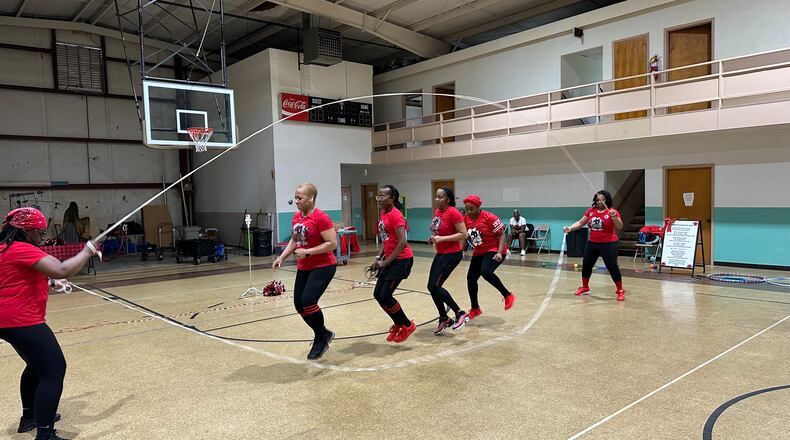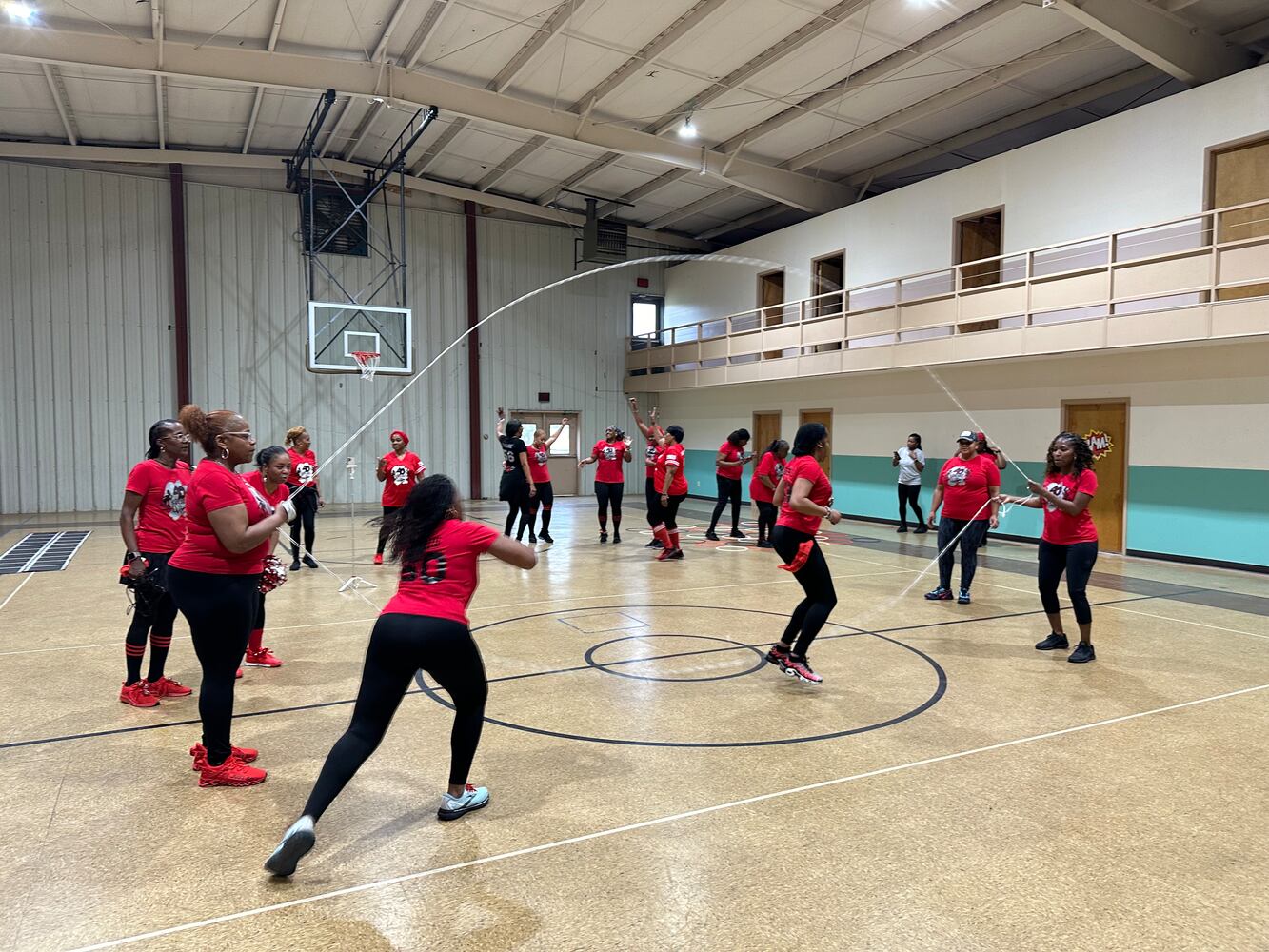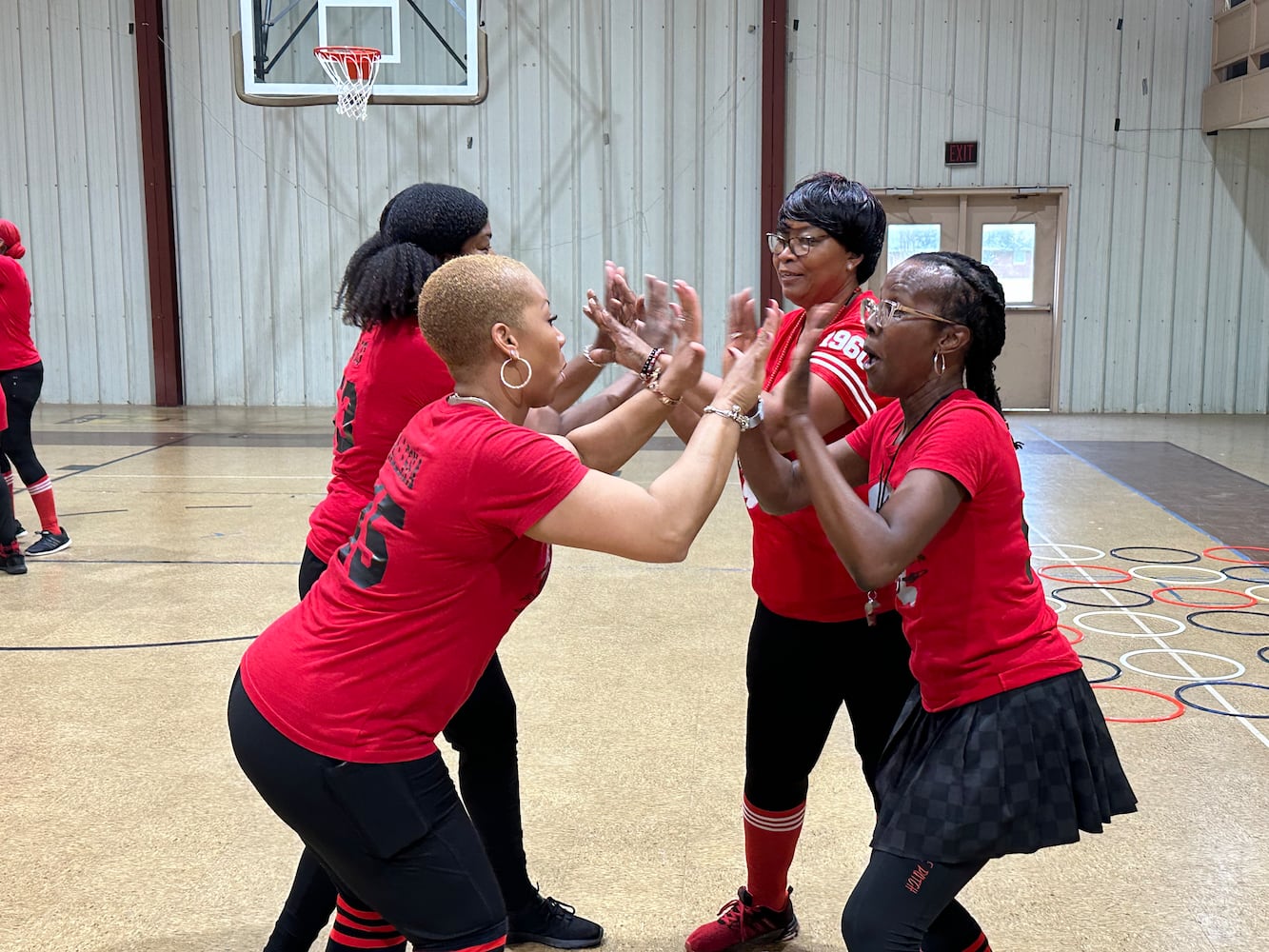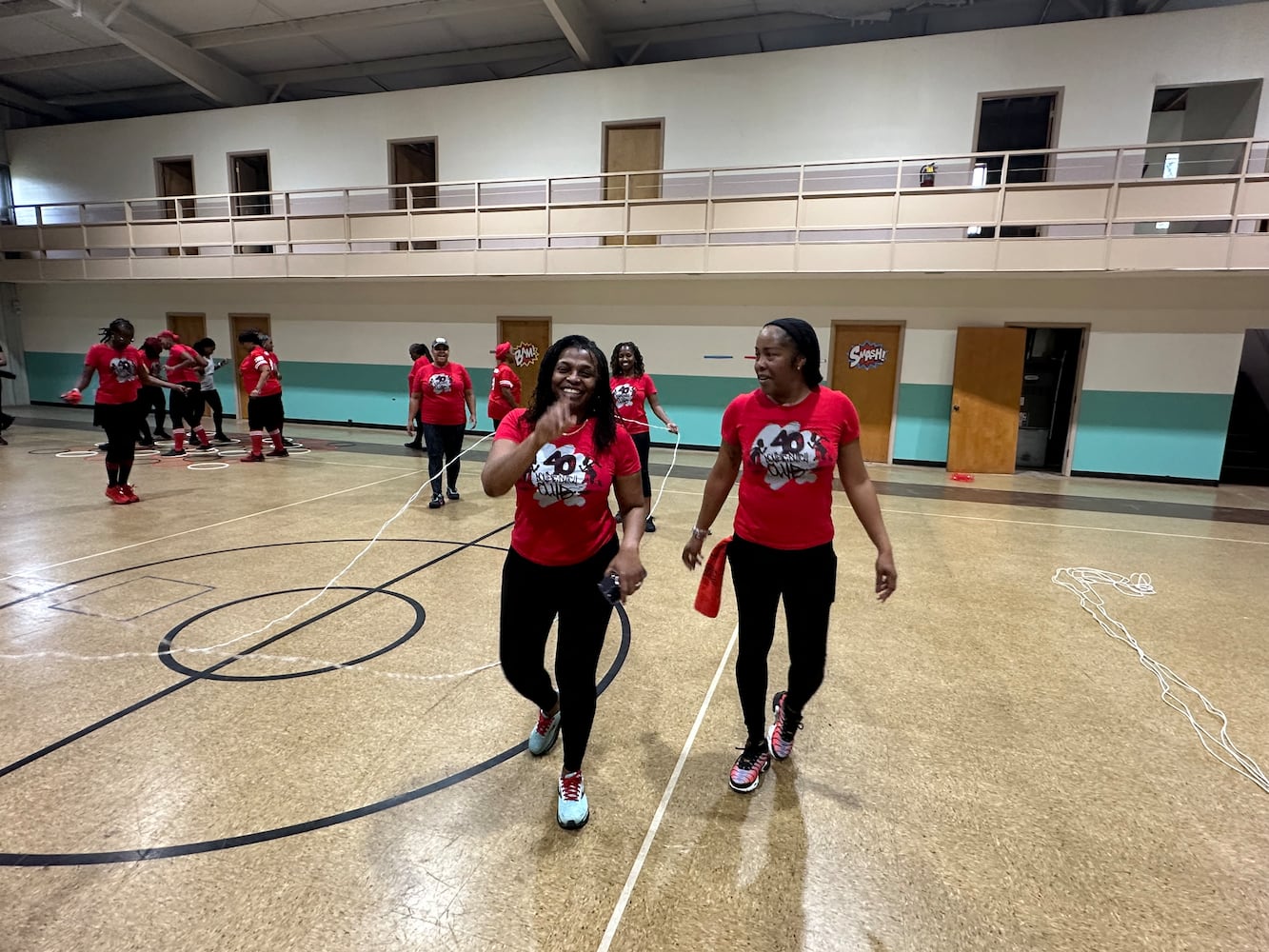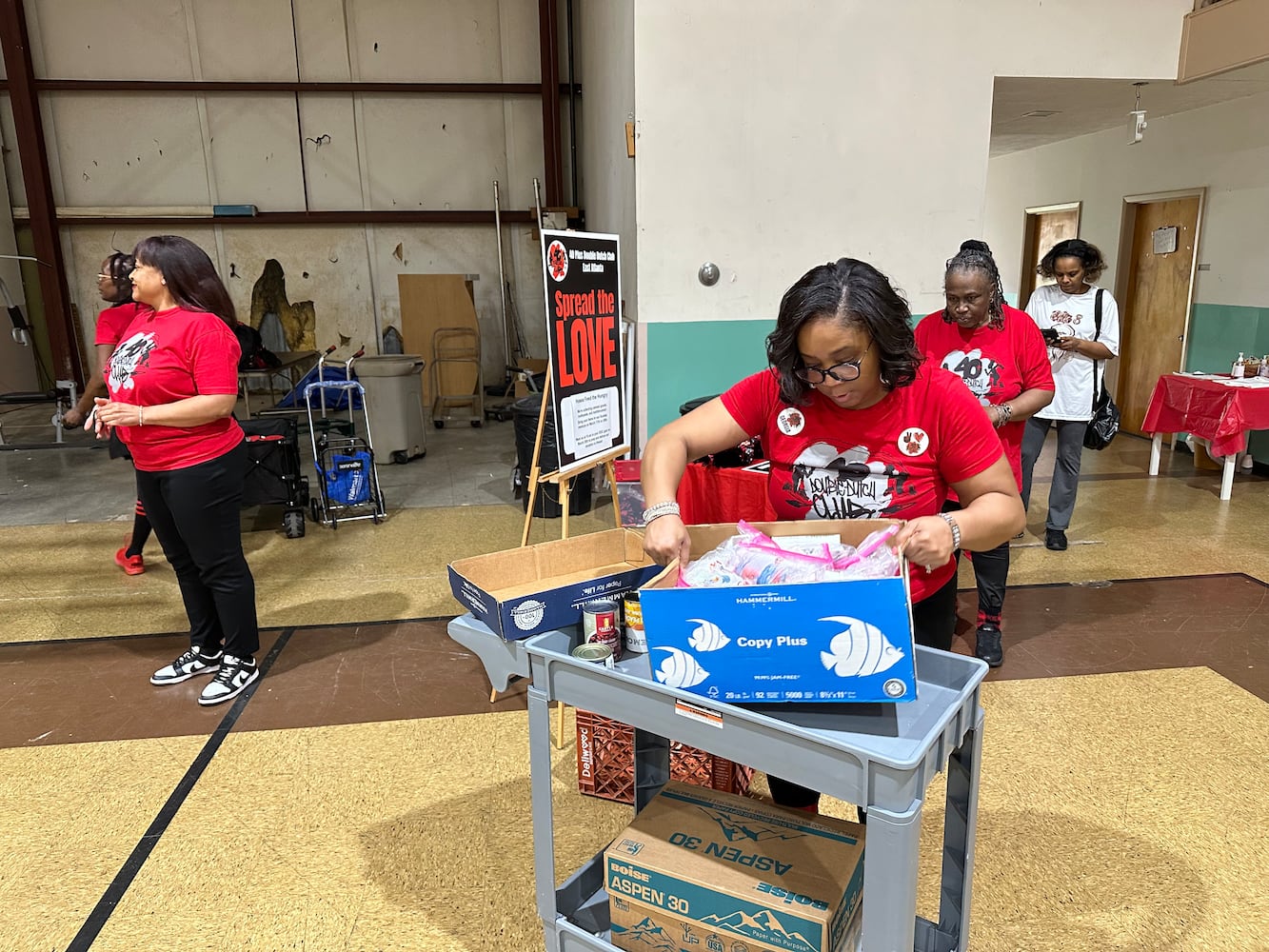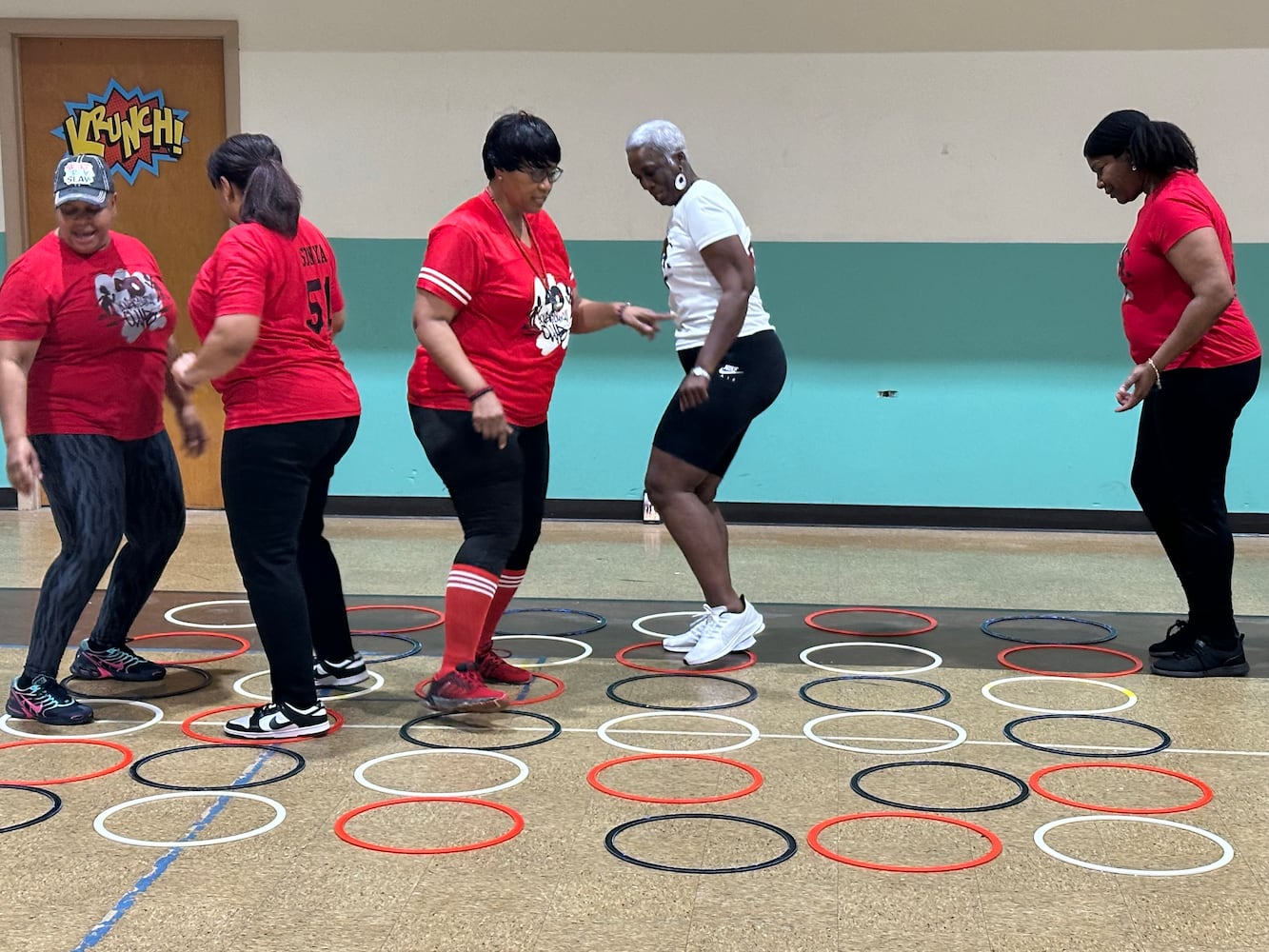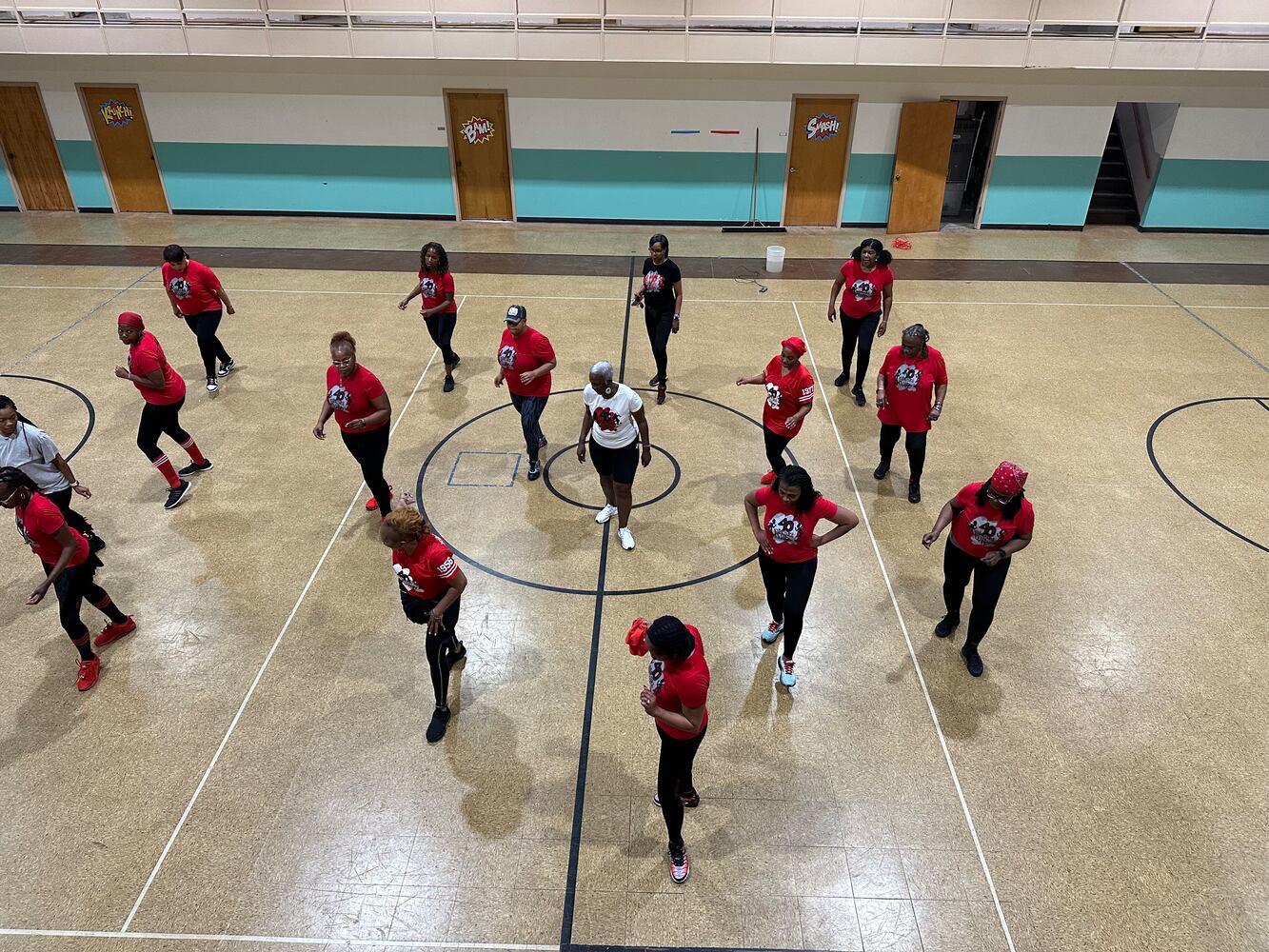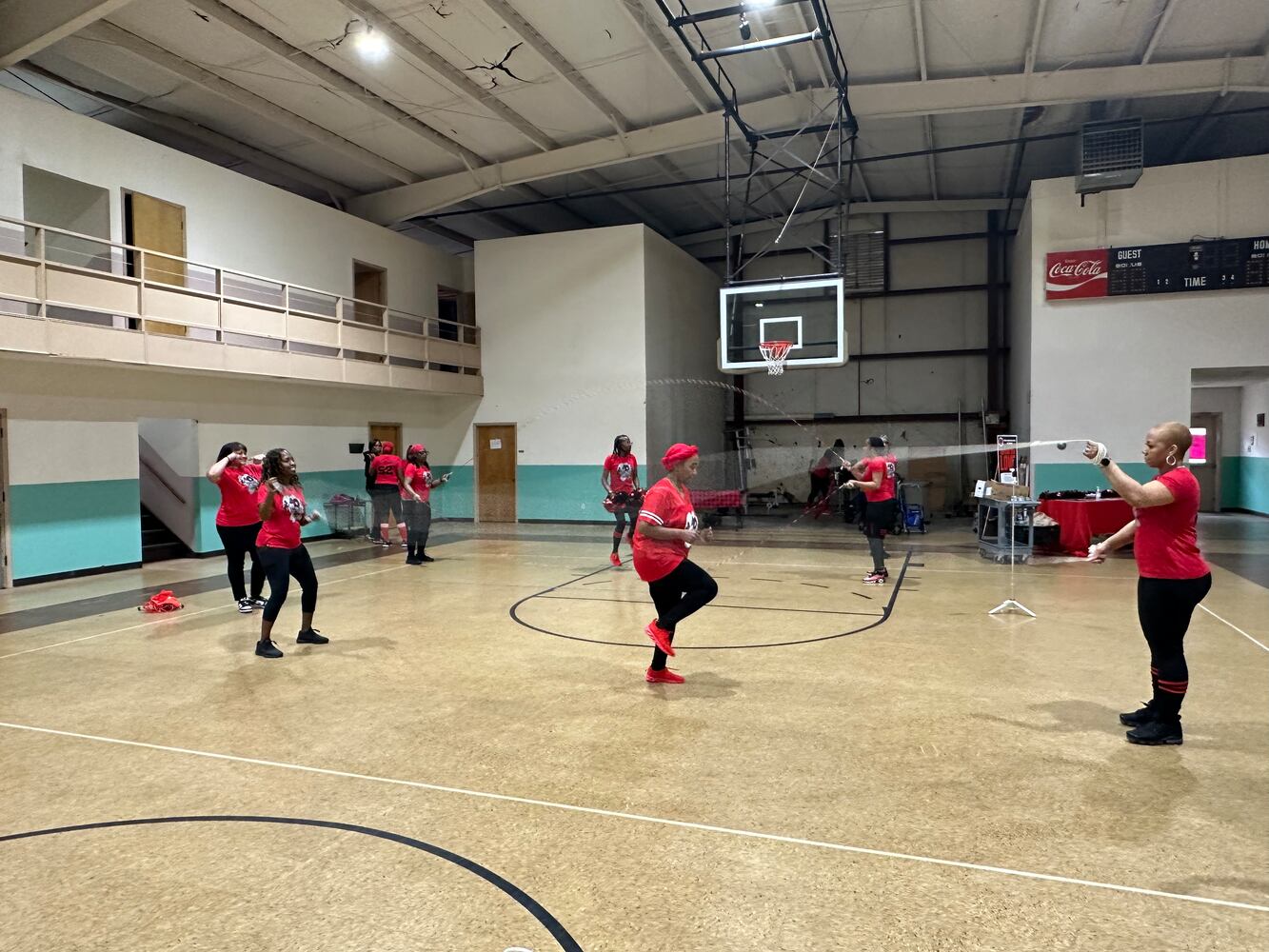There are hula hoops, ankle skip balls and jump ropes spread across the basketball court at First Christ Cares Church in Ellenwood. When I enter the gym, Delilah Allison envelops me in a hug. We’d never met, but making people feel welcome is what the 56-year-old self-proclaimed cheerleader of the 40+ Double Dutch Club’s East Atlanta sub club does best.
There are more hugs as members sign in. They drop bags filled with toothpaste, toothbrushes and canned foods into a donation box for Hosea Feed the Hungry and Homeless. Soon, the music cranks up — LL Cool J, New Edition, Mary J. Blige — and the women start warming up.
My earliest memory of double Dutch involves the late Italian director Franco Zeffirelli and the 1981 movie “Endless Love,” which was filmed at my school in Chicago. I was a tween, jumping rope with friends in the courtyard, when Zeffirelli strolled by. We begged to be in the film. He seemed charmed by our moxie and let the cameras roll.
When I saw the movie, I swore I could see the grainy image of a rope in the background as my friends and I jumped double Dutch — or, in my case, pretended to jump double Dutch. I never really learned how to jump properly and, by the time we entered high school, organized sports had supplanted jumping rope as our primary pastime.
So, when I heard about the 40+ Double Dutch Club, I was intrigued.
Pamela Robinson founded the club in Homewood, Ill., in 2016, during a difficult moment in her life. She was a 45-year-old stay-at-home mom who was going through a divorce and unsure of her purpose.
She shared her struggles with a friend, Catrina Dyer-Taylor, who asked what would make her feel better. Robinson replied that, just for a little while, she wanted to forget life’s challenges and have fun. She asked Dyer-Taylor to help her get a few women together to jump double Dutch.
Double Dutch is believed to have originated in Ancient Egypt and China. It made its way to New York in the 1600s via Dutch colonists, then exploded in popularity in the 1940s, particularly in Northern cities. The sight of neighborhood girls twirling two jump ropes — with a jumper in the middle, timing her jumps — became common. By the 1970s, two former New York City police officers had created a league that hosted competitions.
A handful of women showed up to jump rope at the initial meeting in Homewood, said Robinson. But in 2019, after an appearance on a Chicago area television show, the Facebook group exploded — from 30 local women to 1,000 women nationwide.
Today the 40+ Double Dutch club has more than 10,000 active members and more than 60,000 Facebook followers around the world, said Robinson. Most major cities in the U.S. have sub clubs; metro Atlanta has six. The only requirement to join is that you be a woman over the age of 40.
“It has turned into more than double Dutch,” Robinson said when we talked by phone. “It is about having a social club and a group of women who form bonds. They come for double Dutch, but they stay for sisterhood.”
American life once revolved around social clubs — sports groups, youth clubs, civic clubs, book clubs. They had low or no price of entry and brought together large swaths of the community, all working toward a common goal or exploring a common interest.
But since the 1970s, researchers have seen a decline in those traditional clubs. Women’s groups experienced the first dips, followed by men’s groups about a decade later. Lately, major cities have seen an increase in elite clubs with expensive memberships that limit the opportunity for engagement across the socioeconomic lines.
“We don’t have the same outlets we had when we were growing up,” said Robinson.
She had wanted to create a space to rediscover her own joy, but she realized many other women were looking for the same thing.
There are no club dues, but members buy T-shirts each year with the club logo on the front and their name and age on the back.
The East Atlanta sub club was started in 2020 by Jerri McElroy, 47, who sought a respite from serving as full-time caregiver to her father. She wanted more moments of self-care and needed something relatively close to home. The pandemic delayed the club’s initial gathering, but members managed to meet in July that year.
McElroy and co-captain, Denise Word, 49, make sure the 90-minute weekly meetings — which include jumping, line dancing, the Rockin’ Robin hand game and more — run smoothly. Though many members first jumped rope when they were children, some, like 57-year-old Faberge Fullman, were new to double Dutch. Fullman, a former 5K runner, joined the club last November. By February, she was jumping with ease. “They are good teachers,” Fullman said. “And I’m not a quitter.”
Annie Long, 67, joined the group two years ago. She recalled growing up in Altgeld Gardens, a housing project on Chicago’s far South Side, jumping double Dutch with a clothesline because that was all they had. Now retired, Long spends her Sundays rediscovering that childhood joy. “If you are having a bad day, you can’t wait until Sunday. It is good vibes and good energy,” she said.
After watching the ladies, they invited me to take a turn. I summoned my inner 11-year-old, stood inside the double ropes and jumped to the “one, two” count as the women turning the ropes matched my rhythm. To my surprise, the rope and I managed to stay in motion. For a few seconds, I was taken back in time, and I found myself screaming with delight. If only Zeffirelli and my old friends could see me now.
Read more on the Real Life blog (www.ajc.com/opinion/real-life-blog/) and find Nedra on Facebook (www.facebook.com/AJCRealLifeColumn) and Twitter (@nrhoneajc) or email her at nedra.rhone@ajc.com.
About the Author
Keep Reading
The Latest
Featured
